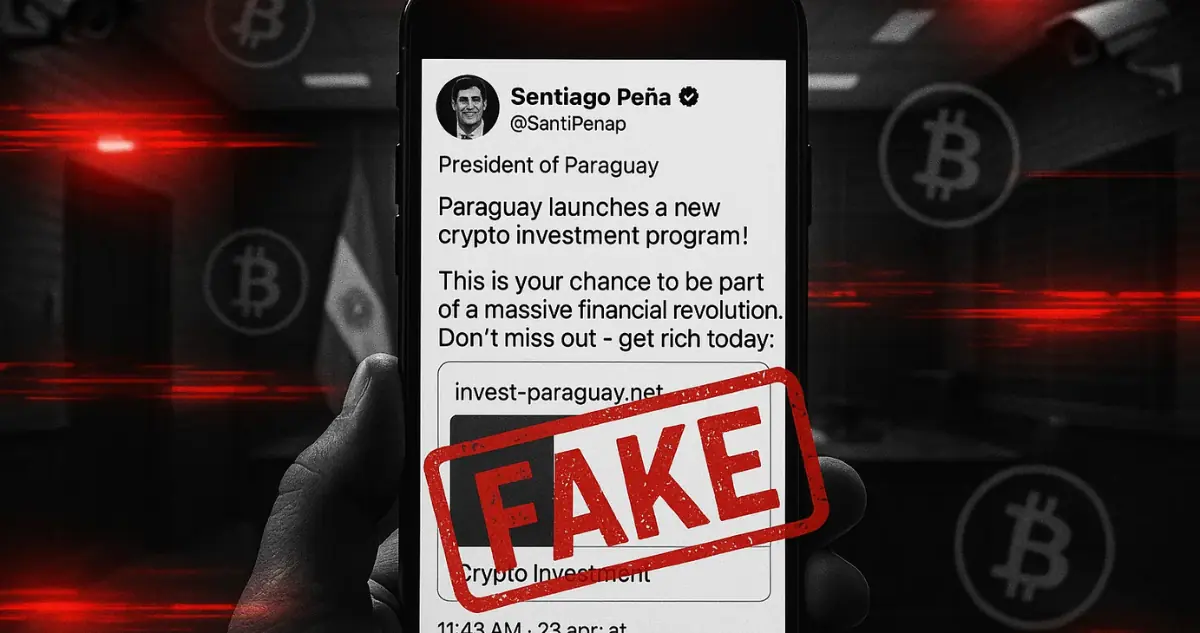The official X (formerly Twitter) account of Paraguay's president, Santiago Peña, has been targeted by an alleged cryptocurrency-related scam.
The scam led to the immediate removal of a post that incorrectly claimed Bitcoin had been approved as legal tender by the South American country. The presidency referred to the security breach as "irregular activity" and "possible unauthorised access", highlighting the increase in cryptocurrency-related cyberthreats targeting important public officials.
The president's name was falsely used in a problematic post published on Monday afternoon, which contained an image with a statement in Spanish urging the Paraguayan people to buy government bonds. The attached English tweet contained misleading references to "$5 million in BTC reserves + access to bonds for crypto-enabled citizens", in stark contrast to the Spanish image, raising immediate suspicions of fraud, later confirmed by the presidential office.
The presidency issued an official statement on X, calling the content of the post false and announcing that the Paraguayan cybersecurity agency has launched an investigation with the cooperation of social media to clarify the incident. The incident demonstrates the increasing difficulties that governments face in trying to protect their digital communication systems from increasingly sophisticated cybercriminals.
Cryptocurrency-related scams across Latin America have seen a strong>strong increase in parallel with the recent rise in the price of Bitcoin, which has also involved Paraguay. Fraudulent investment opportunities exploit social platforms through attractive ads, posts or direct messages, with the aim of targeting unsuspecting victims.
In a striking case this year, Argentine president Javier Milei suffered public humiliation because of his support for a token called Libra, which quickly lost value.
In 2021, El Salvador made history by officially designating Bitcoin as legal tender under the leadership of President Nayib Bukele, while neighbouring countries faced fraudulent activities related to cryptocurrencies. By issuing tokenised bonds, the Bukele administration has shown a concrete commitment to digital currencies, integrating them into the national economy. Regional differences in cryptocurrency policies reflect how differently governments perceive the risks and opportunities of the sector.
The most recent event highlights that Paraguay's governmental institutions have also been victims of cyber-attacks in the past. According to data from the Ministry of Communications, 18 hacker attacks have been detected in the past month alone. Numerous public institutions across the country have been affected, including essential authorities such as the civil aviation authority and the ministry of justice, showing a widespread and persistent threat environment.
The attack on President Peña's X account therefore represents only one part of the broader cyber security challenge that Paraguay is facing. The ongoing investigation will likely reveal the tactics used by the hackers and underline the need for stronger cyber defences to protect national leaders and maintain public trust in digital systems.








